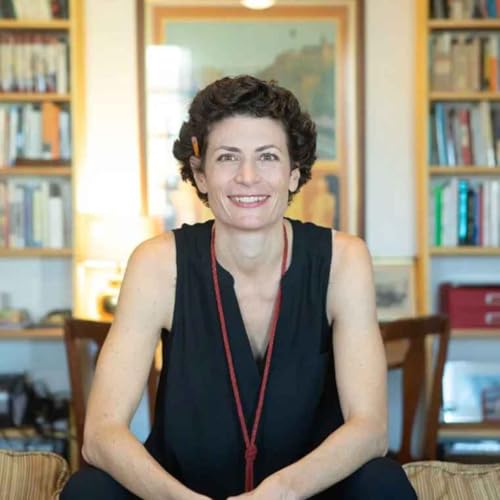
This Sustainable Life
カートのアイテムが多すぎます
カートに追加できませんでした。
ウィッシュリストに追加できませんでした。
ほしい物リストの削除に失敗しました。
ポッドキャストのフォローに失敗しました
ポッドキャストのフォロー解除に失敗しました
-
ナレーター:
このコンテンツについて
Do you care about the environment but feel "I want to act but if no one else does it won't make a difference" and "But if you don't solve everything it isn't worth doing anything"?
We are the antidote! You're not alone. Hearing role models overcome the same feelings to enjoy acting on their values creates meaning, purpose, community, and emotional reward.
Want to improve as a leader? Bestselling author, 3-time TEDx speaker, leadership speaker, coach, and professor Joshua Spodek, PhD MBA, brings joy and inspiration to acting on the environment. You'll learn to lead without relying on authority.
We bring you leaders from many areas -- business, politics, sports, arts, education, and more -- to share their expertise for you to learn from. We then ask them to share and act on their environmental values. That's leadership without authority -- so they act for their reasons, not out of guilt, blame, doom, gloom, or someone telling them what to do.
Click for a list of popular downloads
Click for a list of all episodes
Guests include
- Dan Pink, 40+ million Ted talk views
- Marshall Goldsmith, #1 ranked leadership guru and author
- Frances Hesselbein, Presidential Medal of Freedom honoree, former CEO of the Girl Scouts
- Elizabeth Kolbert, Pulitzer Prize winning author
- David Allen, author of Getting Things Done
- Ken Blanchard, author, The One Minute Manager
- Vincent Stanley, Director of Patagonia
- Dorie Clark, bestselling author
- Bryan Braman, Super Bowl champion Philadelphia Eagle
- John Lee Dumas, top entrepreneurial podcaster
- Alisa Cohn, top 100 speaker and coach
- David Biello, Science curator for TED
Hosted on Acast. See acast.com/privacy for more information.
Joshua Spodek: Author, Speaker, Professor-
 40 分
40 分カートのアイテムが多すぎます
ご購入は五十タイトルがカートに入っている場合のみです。カートに追加できませんでした。
しばらく経ってから再度お試しください。ウィッシュリストに追加できませんでした。
しばらく経ってから再度お試しください。ほしい物リストの削除に失敗しました。
しばらく経ってから再度お試しください。ポッドキャストのフォローに失敗しました
ポッドキャストのフォロー解除に失敗しました
-
 42 分
42 分カートのアイテムが多すぎます
ご購入は五十タイトルがカートに入っている場合のみです。カートに追加できませんでした。
しばらく経ってから再度お試しください。ウィッシュリストに追加できませんでした。
しばらく経ってから再度お試しください。ほしい物リストの削除に失敗しました。
しばらく経ってから再度お試しください。ポッドキャストのフォローに失敗しました
ポッドキャストのフォロー解除に失敗しました
-
 1 時間 10 分
1 時間 10 分カートのアイテムが多すぎます
ご購入は五十タイトルがカートに入っている場合のみです。カートに追加できませんでした。
しばらく経ってから再度お試しください。ウィッシュリストに追加できませんでした。
しばらく経ってから再度お試しください。ほしい物リストの削除に失敗しました。
しばらく経ってから再度お試しください。ポッドキャストのフォローに失敗しました
ポッドキャストのフォロー解除に失敗しました


